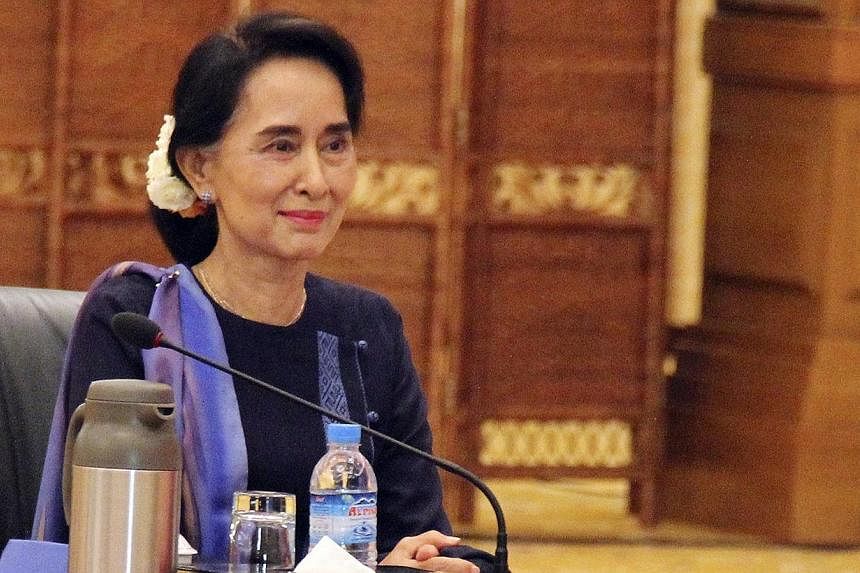YANGON (REUTERS) - Myanmar opposition leader and Nobel Prize-winner Aung San Suu Kyi will pay an official visit to China next month, an official from her party said on Tuesday.
The "goodwill" visit will last about a week, Win Htein, a senior member of Ms Suu Kyi's National League for Democracy, told Reuters. No further details were available.
Chinese Foreign Ministry spokesman Hua Chunying told a daily news briefing in Beijing that she had no "definite" information about a Suu Kyi visit. "We have close contacts and communication with all parties and sides in Myanmar, including the National League for Democracy. The aim of this is to promote the all round development of bilateral ties," she added.
Since taking power in March 2011, Myanmar's reformist government has sought to decrease its dependence on China, which was cemented during years of Western sanctions put in place in response to human rights abuses carried out by the ruling junta.
The NLD is expected to do well in next year's general elections, although Ms Suu Kyi is excluded from the presidency. The military-drafted constitution bars the position to anyone with a spouse or children holding foreign citizenship. Her late husband was British, as are her two sons.
Ms Suu Kyi led the NLD to a sweeping victory in general elections in 1990, but the military government refused to recognize the results.
She became an international icon after winning the Nobel Peace Prize in 1991 for her pro-democracy efforts and spent most of the next two decades under house arrest where she continued to resist Myanmar's military rulers.
She was freed five months before the current semi-civilian government took power after 49 years of military rule. Her release heralded the launch of widespread reforms by the government led by President Thein Sein, a former general, including the release of hundreds more political prisoners and the lifting of restrictions on media and political parties.

